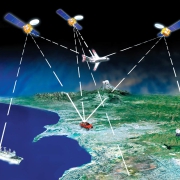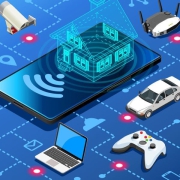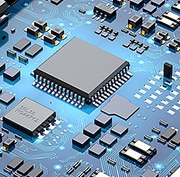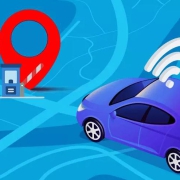The Difference Between 4G GPS Tracker and 2G GPS Tracker
GPS trackers have become an important element in our daily lives. They make it easier for us to track the location of various assets, from commercial vehicles to personal items. GPS trackers are designed to transmit location data to control centers or smartphone applications, allowing users to track their assets in real-time. GPS trackers can utilize different networks to transmit this data, including 2G and 4G networks.
In this article, we will investigate the differences between 4G GPS trackers and 2G GPS trackers, including their advantages and disadvantages.
What is a 4G GPS tracker?
The 4G GPS tracker uses fourth generation cellular network technology to transmit location data. The design of 4G networks is to provide faster and more reliable data transmission than 2G or 3G networks. 4G networks can transmit data at speeds up to 100Mbps, which is much faster than the data transmission speed of 2G networks.
Advantages of 4G GPS tracker:
1. Improve data transmission speed
The faster data transmission speed of 4G networks enables 4G GPS trackers to provide real-time tracking data with almost no latency. This means that users can track the location of their assets more accurately and quickly, allowing for faster decision-making and response.
2. Better coverage
4G networks have better coverage than 2G networks, allowing 4G GPS trackers to transmit data over a larger range. This means that 4G GPS trackers have a higher chance of transmitting data in areas with weak network signals, such as remote areas.
3. More reliable
4G networks are more reliable than 2G networks because they use more advanced technology. This means that 4G GPS trackers are unlikely to encounter downtime or network issues.
What is a 2G GPS tracker?
The 2G GPS tracker uses second-generation cellular network technology to transmit location data. 2G network is the first generation digital cellular network and is still widely used, especially in areas with limited network coverage.
Advantages of 2G GPS tracker:
1. Low cost
2G GPS trackers are usually cheaper than 4G GPS trackers because they use older and cheaper technology. This makes 2G GPS trackers a more cost-effective choice for companies or individuals with tight budgets.
2. Longer battery life
2G GPS trackers use less power than 4G GPS trackers, which means they can run for longer periods of time in a single charge. This makes them an ideal choice for tracking assets that are not frequently or continuously used.
3. Ideal choice for remote areas
In remote or rural areas, 2G networks typically have better coverage than 4G networks. This makes 2G GPS trackers an ideal choice for tracking assets in these places, as other network technologies may be unreliable.
Disadvantages of 2G GPS tracker:
1. Slow data transmission
The data transmission speed provided by 2G networks is slower than that of 4G networks, which means that 2G GPS trackers may experience delays in transmitting location data. This may lead to inaccurate location data and slower reaction time.
2. Reliability issues
Due to its long history and outdated technology, 2G networks are more prone to interruptions and failures than 4G networks. This means that 2G GPS trackers may encounter downtime or network issues, resulting in a lack of location data for the tracked assets.
In summary, the choice between 4G GPS trackers and 2G GPS trackers depends on the specific needs and priorities of individuals or businesses. Although 4G GPS trackers provide faster and more reliable data transmission, they are usually more expensive than 2G GPS trackers. In addition, the 2G GPS tracker has a longer battery life and may be the best choice for tracking assets in remote areas. However, they may encounter reliability issues and slower data transmission speeds.
Ultimately, it is important to weigh the advantages and disadvantages of 4G and 2G GPS trackers before deciding which one to use.










Leave a Reply
Want to join the discussion?Feel free to contribute!